16 October 2017. Brussels. Harnessing Research and Innovation for FOOD 2030. This one day conference served to disseminate successful European Research and Innovation (R&I) initiatives and contribute to the ongoing science-policy dialogue in the area of Nutrition and Security (FNS).
The conference provided a stakeholder platform for a science policy dialogues to assess the current state of European research, innovation and investment, and explore furture needs relevant to:
Concept and Agenda - final 371 KB
371 KB
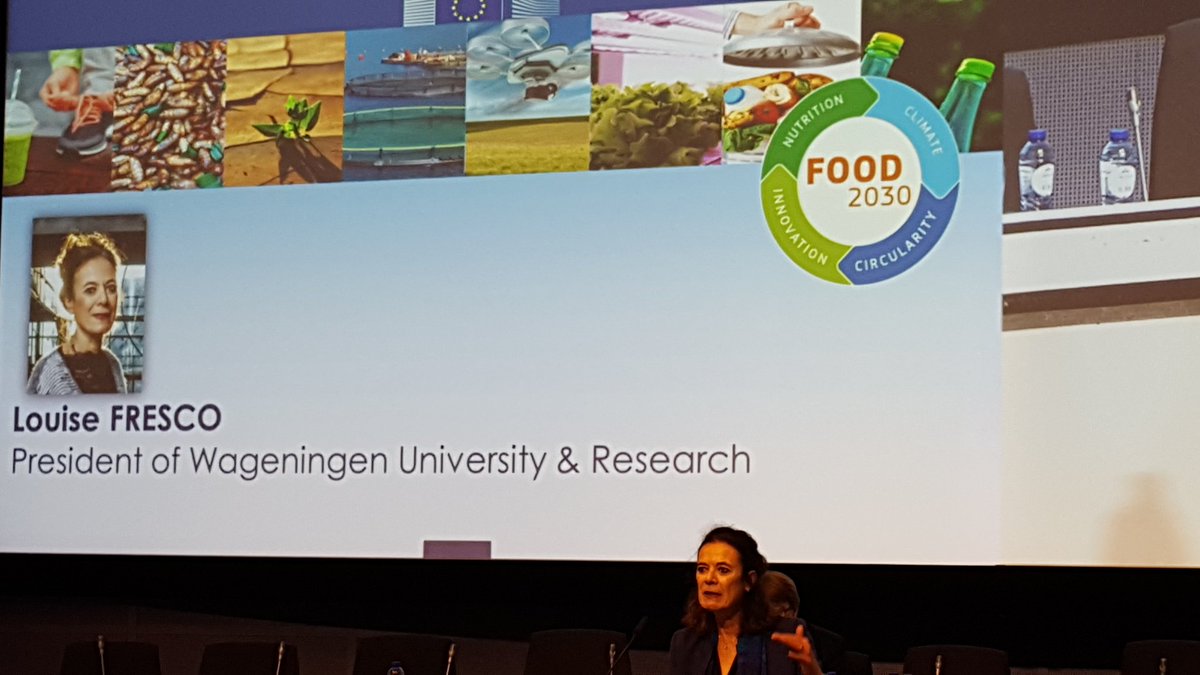 Plenary Political Session: See the video streaming
Plenary Political Session: See the video streaming
Scientific Scene Setter: main research breakthroughs and trends, possibilities and innovation
Louise Fresco, President of Wageningen University & Research
R&I in support of a modernised CAP
The conference provided a stakeholder platform for a science policy dialogues to assess the current state of European research, innovation and investment, and explore furture needs relevant to:
- Sustainable and healthy nutrition;
- climate-resilience and environmental sustainability;
- circularity and resource efficienty; and
- food system innovation and empowerment of communities.
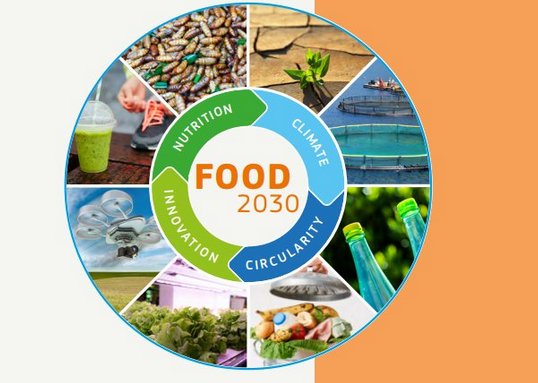
Concept and Agenda - final
 Plenary Political Session: See the video streaming
Plenary Political Session: See the video streamingScientific Scene Setter: main research breakthroughs and trends, possibilities and innovation
Louise Fresco, President of Wageningen University & Research
R&I in support of a modernised CAP
- Tassos Haniotis, Director for Economic Analysis, Directorate-General for Agriculture
- Cristina Amaral, Director for FAO's Liaison Office with the European Union and the Kingdom of Belgium
- Joachim von Braun, ZEF B: Department of Economic and Technological Change
- Cathy Maguire, European Environment Agency
- Ivan Dimov, Deputy Education Minister of Bulgarian Presidency
- John Bell, Director for Bioeconomy, Directorate-General for Research and Innovation

A set of policies and practices are identified that, if scaled up, could have significant impact on nutrition, child survival, and development in Africa. The experience of the seven countries covered in the report shows what can and needs to be done to substantially improve a country’s nutritional status. The report provides a roadmap for African governments to take concerted action to deliver on the nutrition targets set out by the Malabo Declaration and the Sustainable Development Goals.

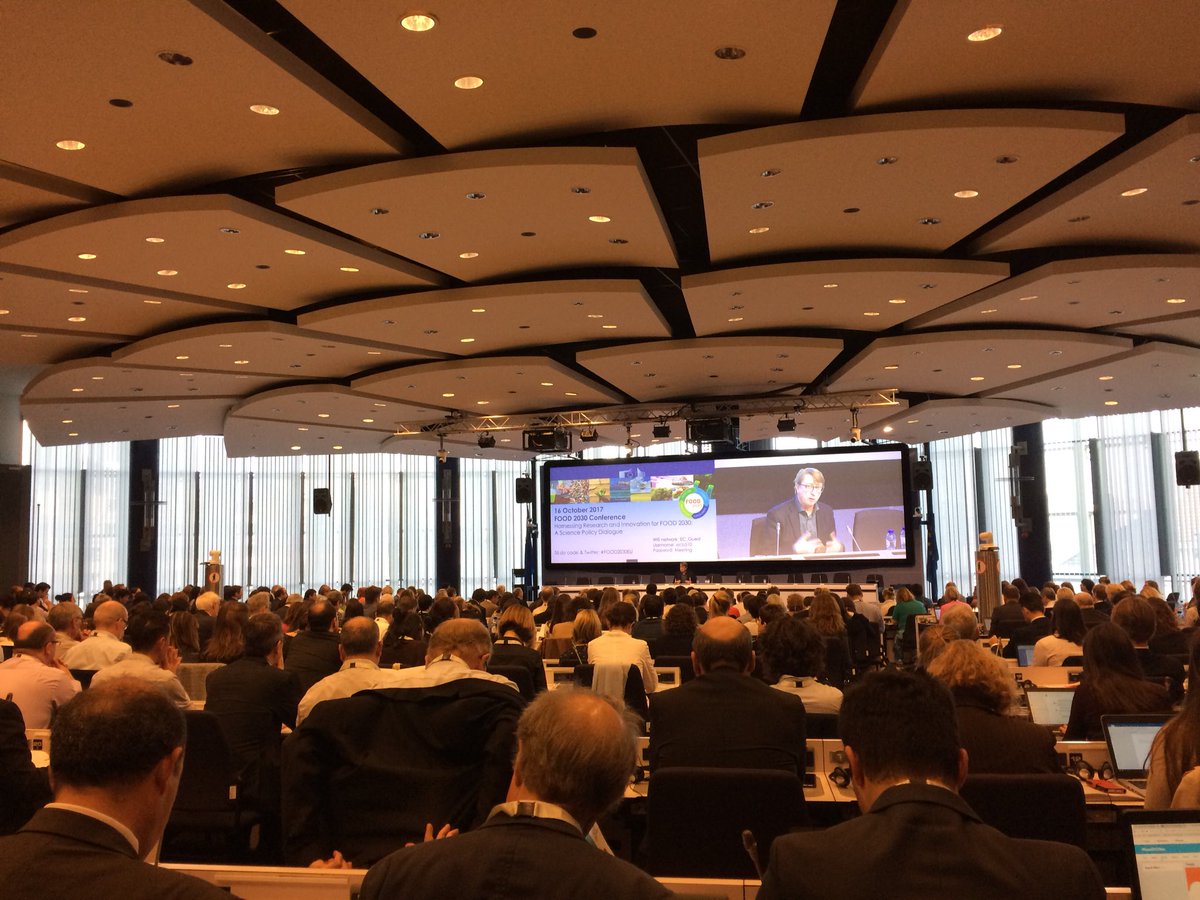
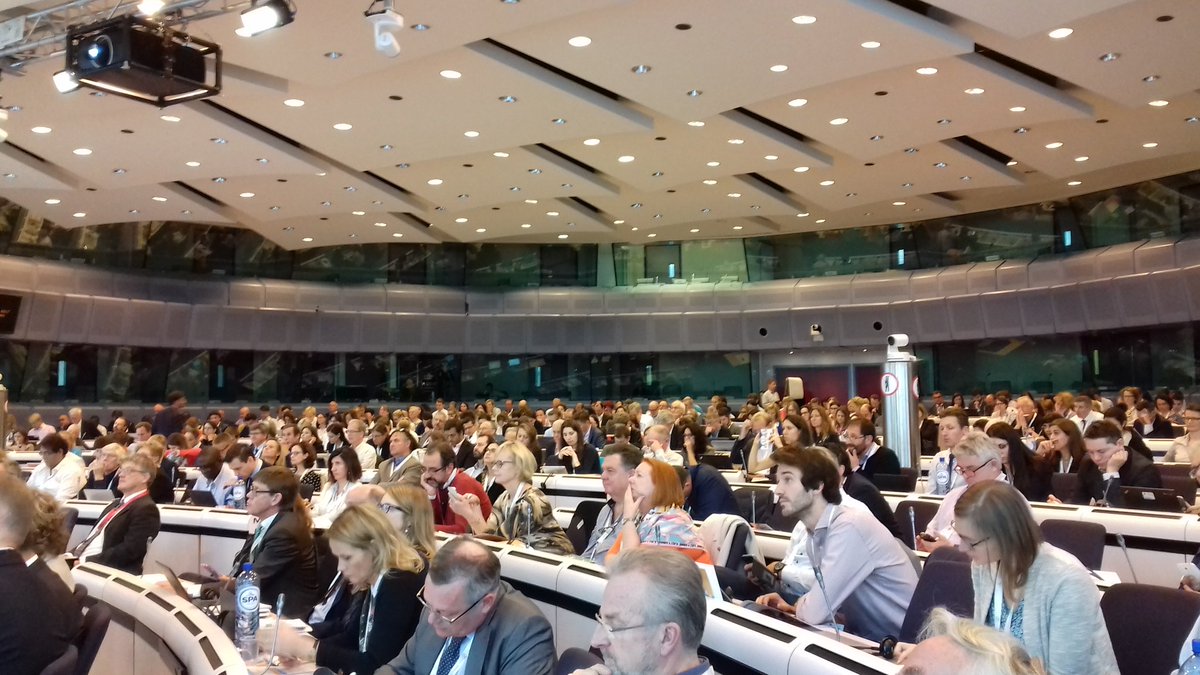


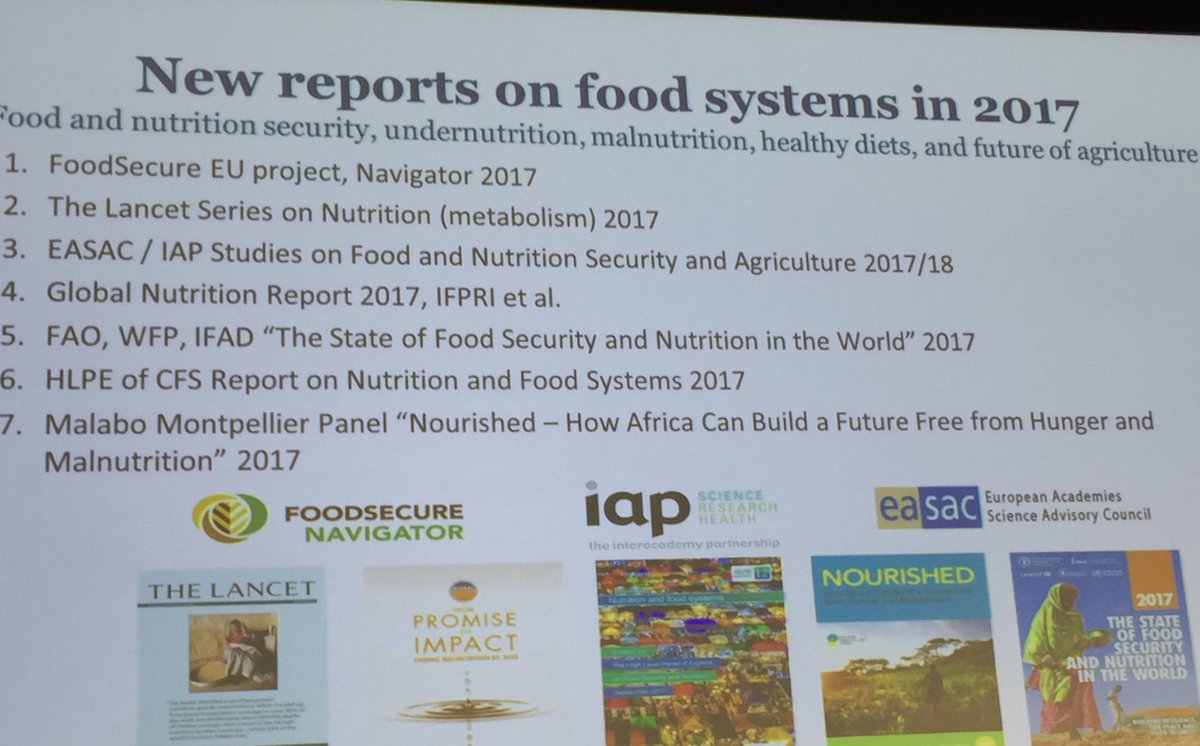

No comments:
Post a Comment